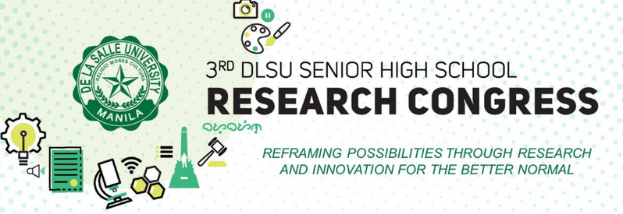Document Types
Paper Presentation
Research Theme (for Paper Presentation and Poster Presentation submissions only)
Gender, Human Development, and the Individual (GHI)
School Name
De La Salle University Integrated School, Manila
Start Date
29-4-2021 1:00 PM
End Date
29-4-2021 3:00 PM
Abstract/Executive Summary
Sexual literacy is an important aspect of the formative development of individuals as it influences their capacity to think about and act upon factors affecting the sexual aspect of their lives. However, achieving a certain level of sexual literacy is still a complex path in society, especially in prestigious schools in the Philippines such as De La Salle University Manila (DLSU-M). This study aims to assess DLSU-M Senior High School (SHS) students’ level of sexual literacy, determine factors significantly explaining it, and form statistical models based on the significant factors. Both Poisson regression models and Logistic regression models revealed significantly higher sexual literacy scores among students with Chinese ethnicity, teacher as main source of information on relationships and sex, and mother as secondary source of information on reproductive health. Furthermore, Poisson regression models also revealed that favoring Lesbian, Gay, Bisexual, Transgender, Queer and/or Questioning, Intersex, Asexual and/or Ally, and others (LGBTQIA+) rights is also a significant predictor of sexual literacy. Therefore, educators such as parents and teachers positively impact an SHS student’s sexual literacy. Their immediate environment is especially significant in honing their comprehension regarding sexual and reproductive health, thus, a more open yet secure space must be reinforced.
Keywords
sexual literacy; shs students; reproductive health; developing countries; education
Initial Consent for Publication
yes
Determinants of Sexual Literacy of Senior High School Students in De La Salle University-Manila
Sexual literacy is an important aspect of the formative development of individuals as it influences their capacity to think about and act upon factors affecting the sexual aspect of their lives. However, achieving a certain level of sexual literacy is still a complex path in society, especially in prestigious schools in the Philippines such as De La Salle University Manila (DLSU-M). This study aims to assess DLSU-M Senior High School (SHS) students’ level of sexual literacy, determine factors significantly explaining it, and form statistical models based on the significant factors. Both Poisson regression models and Logistic regression models revealed significantly higher sexual literacy scores among students with Chinese ethnicity, teacher as main source of information on relationships and sex, and mother as secondary source of information on reproductive health. Furthermore, Poisson regression models also revealed that favoring Lesbian, Gay, Bisexual, Transgender, Queer and/or Questioning, Intersex, Asexual and/or Ally, and others (LGBTQIA+) rights is also a significant predictor of sexual literacy. Therefore, educators such as parents and teachers positively impact an SHS student’s sexual literacy. Their immediate environment is especially significant in honing their comprehension regarding sexual and reproductive health, thus, a more open yet secure space must be reinforced.


